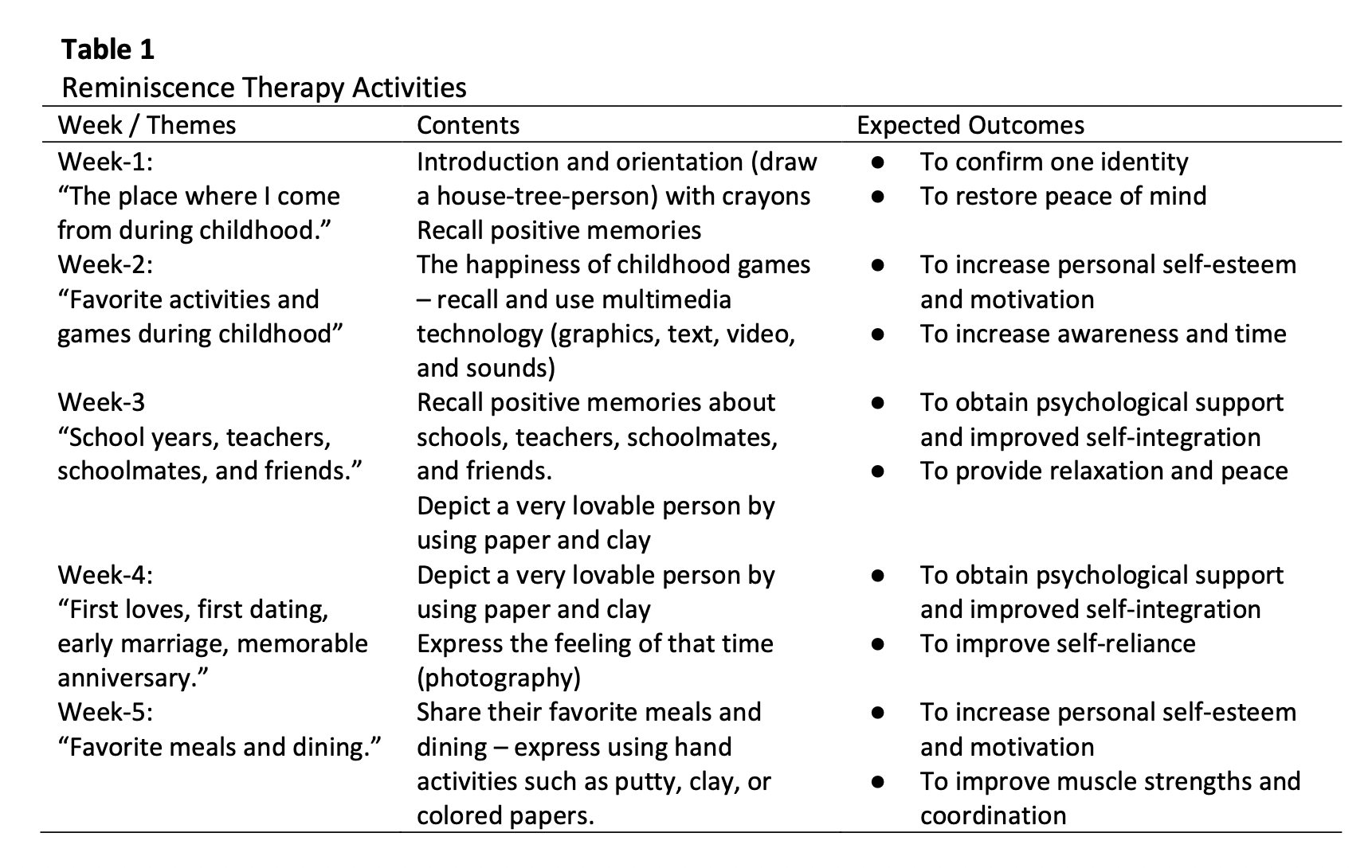The Effects of Exercise and Reminiscence Therapy on Depression and Quality of Life Among the Older Adults with Mild Alzheimer’s Disease
DOI:
https://doi.org/10.37934/araset.29.3.185197Keywords:
Alzheimer’s, Depression, Exercise, Quality of life, ReminiscenceAbstract
Alzheimer’s disease (AD) is the most common cause of dementia in older adults. Depression is an important co-morbid disorder in this group, as it may decrease their quality of life (QoL). Exercise or Reminiscence therapy (RT) is thought to be viable in lessening the degree of depression in older adults. To investigate and compare the impacts of integrated exercise and reminiscence therapy on depression level and QoL in older adults. A single-blinded quasi-experimental study with a comparison group design was conducted on 51 institutionalized older adults with mild-to-moderate AD and were grouped into (i) Reminiscence (RT, n = 17), (ii) exercise (EX, n = 16), and (iii) exercise coupled with Reminiscence (ER, n = 18). The depression level was assessed using the Cornell Scale for Depression in Dementia (CSDD); the QoL was assessed using the QOL–AD scale. A repeated-measures ANOVA was used for data analyses. Results: The reminiscence therapy alone or in combination with the exercise was effective in reducing depression levels and improved QoL in the older adults (p<.05). The reminiscence therapy alone or in combination with the exercise was effective in reducing depression levels and improved QoL in older adults. This study found significant improvements in the mean score of CSDD and QOL–AD of the ER, thus supporting its effectiveness in reducing depressive symptoms and improving QoL in mild AD. These results help as a contribute to the healthcare practices to deliver an integrated reminiscence and exercise in older adults’ rehabilitation.
Downloads





























